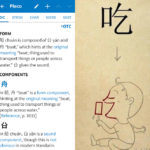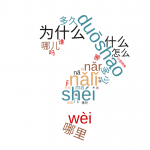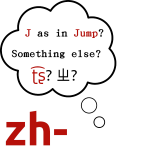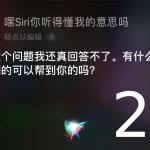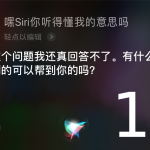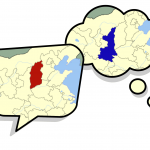Articles in the ‘Distinctively Chinese’ category Page 7
-
Dealing with Chinese characters you keep mixing up
The more Chinese characters you learn, the harder it becomes to keep similar characters distinct. If you’re not careful, a pair or group of characters can generate a lot of extra work and frustration. The solution is to trace your errors and figure out why you get the characters wrong and, then deal with them decisively!
Read → -
5 levels of understanding Chinese characters: Superficial forms to deep structure
How much do you need to care about the actual composition and meaning of a Chinese character when learning it? In general, better understanding means it’s easier to learn, but is there a limit to how closely you should stick to actual etymology? This article explores the spectrum from using superficial images to real etymology from the perspective of a language learner.
Read → -
Does using colour to represent Mandarin tones make them easier to learn?
Some learning materials, apps and tools allow you to add colours to show Mandarin tones, but is this really helpful? This article discusses the ins and outs of using colour to learn and remember tones, along with some practical considerations.
Read → -
How to look up Chinese characters you don’t know
Looking up an unknown character in Chinese is much trickier than looking up unknown words in most other languages. This article discusses various ways of looking up Chinese characters, including paper dictionaries, handwriting input, OCR and more.
Read → -
Why is listening in Chinese so hard?
Most students think that listening in Chinese is hard, but how much of that is just listening being difficult in general and how much is attributable to Chinese specifically? This article covers both aspects and discusses reasons why listening is difficult, both in general and for Chinese in particular.
Read → -
Two types of pronunciation problems and what to do about them
Many assume that when someone gets pronunciation wrong, they haven’t learnt how to produce that sound correctly yet. This is not always the case, though, because there is another reason that is perhaps even more likely to be the cause of the problem! What are the two types of problems and what can we do about them?
Read → -
101 questions and answers about how to learn Chinese
This is the biggest collections of questions and answer about how to learn Chinese anywhere. The questions are sorted into categories, and each question is answered briefly before links to further information is provided. If you have a question about how to learn Chinese, you’re very likely to find the answer here! If your question hasn’t been answered, please consider leaving a comment!
Read → -
How good is voice recognition for learning Chinese pronunciation?
Speech recognition technology has developed rapidly and can now be relied on to correctly identify standardised and clear pronunciation in Mandarin. But can it be used to check your Mandarin pronunciation? Not necessarily. This article looks at how well speech recognition software deals with non-native and low-quality audio, focusing on the question if speech recognition is too lenient for pronunciation practice.
Read → -
Using speech recognition to improve Chinese pronunciation, part 1
Speech recognition technology has developed rapidly and can now be relied on to correctly identify standardised and clear pronunciation in Mandarin. But can it be used to check your Mandarin pronunciation? Not necessarily. There are two problems that need to be investigated to answer that question. This article looks at the first: If speech recognition is unable to identify what you say, does that mean that your pronunciation is bad, or could it be the speech recognition that isn’t good enough?
Read → -
Tone errors in Mandarin that actually can cause misunderstandings
Accidentally saying “chest hair” in Chinese when you mean “panda” is amusing, but it rarely causes confusion. Let’s look at some tone mistakes that actually do cause confusion!
Read →

